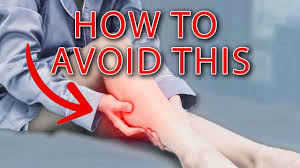
Does a leg cramp or charley horse frequently keep you up at night? Find out how to get relief fast and prevent cramps from coming back.
Have you ever felt a sudden tightening and pain in your leg? What you felt was most likely a leg cramp, an involuntary contraction of muscles in your leg. Leg cramps can be painful enough to stop you in the middle of a run or wake you up during the night.[1]
The causes of leg cramps are often overworking or straining your muscles during exercise, a lack of blood flow to the muscle, an electrolyte imbalance, or simply holding a position for long periods of time. Muscle cramps are common during pregnancy and in people who take certain medications.[2]
In this article, we explore the causes of leg cramps and how to find relief. Understanding what’s behind these painful cramps can help you work with your doctor to prevent them or manage them when they happen.
Medical Causes of Leg Cramps
The muscles of your upper and lower legs allow you to stand, walk, jump, and do other leg movements. Each muscle is made up of fibers that alternately contract and relax to make your legs move. A cramp is a sudden, involuntary tightening (contraction) of a single muscle or muscle group, often in the calf. It can last anywhere from a few seconds to a few minutes.[3]
Certain medical conditions and medications can make you more likely to have leg cramps. Diabetes, nutrient deficiencies, and blood flow problems are all possible causes.
Dehydration, Electrolyte Imbalance, and Leg Cramps
Dehydration (having too little fluid in your body) can cause leg cramps by altering your blood flow and the level of electrolytes in your body.
[3] Electrolytes are minerals like sodium, potassium, and calcium that give off an electric charge when they’re dissolved in body fluids like blood and urine. Your muscles need electrolytes to contract and relax. Dehydration as a result of excessive sweating, vomiting, or diarrhea may cause you to lose too many electrolytes, leading to muscle cramps and spasms.[4]The following signs indicate that you might be dehydrated:[5]
- Thirst
- Dark urine or less urine than usual
- Dry lips and skin
- Headaches
- Tiredness
- Dizziness or fainting
- Heart palpitations or a high heart rate
Drinking a lot of water when you’re dehydrated might actually make cramps worse by diluting the sodium in your body. According to a study in BMJ Open Sport & Exercise Medicine, it may be better to drink an electrolyte solution to rehydrate without lowering the level of sodium.[6]
Continue reading from Everyday Health
Stay informed with MS news and information - Sign-up here
For MS patients, caregivers or clinicians, Care to chat about MS? Join Our online COMMUNITY CHAT



